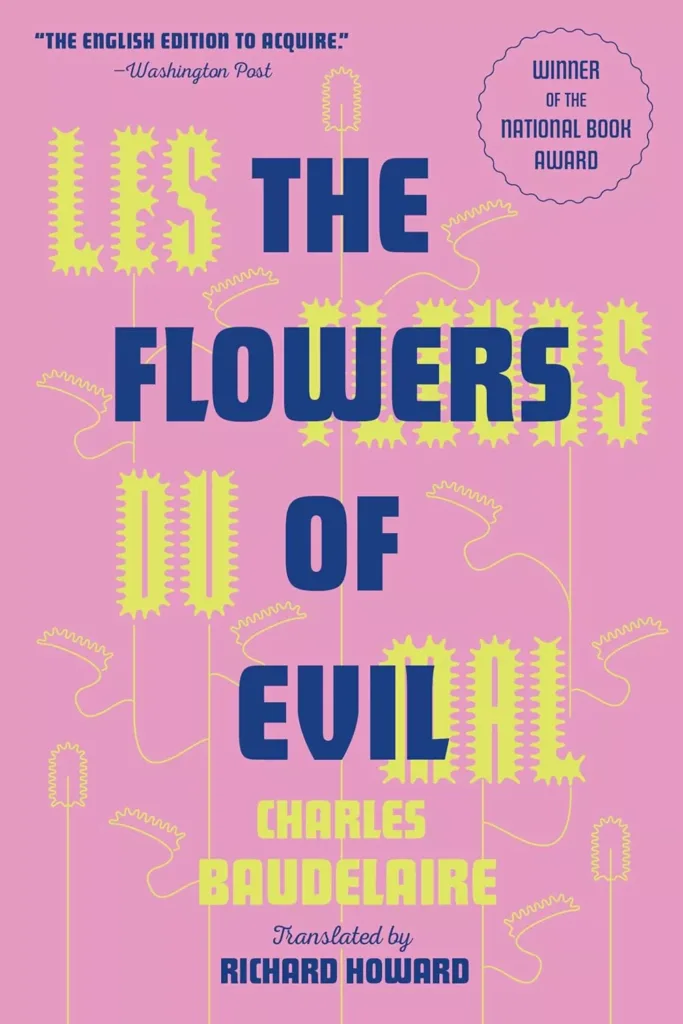In literature, where emotions dance with words, a poetic phenomenon delves deep into the complexities of the human soul: poetry inspired by “spleen.” This elusive and captivating form of expression transcends mere words on a page; it embodies the very essence of melancholy, introspection, and deep emotion. Imagine verses that resonate with the echoes of a weary heart, whispering secrets of pain and longing, painting vivid tapestries of human experience.
As we journey through the annals of literary history, we reveal the enigmatic appeal of “spleen” poetry and its profound influence on some of the most revered masterpieces ever written. From Baudelaire’s haunting verses to Verlaine’s touching sonnets, poetry inspired by this existential condition has left an indelible mark on the landscape of literature, shaping the course of poetic expression for generations to come.
In these verses, we find solace in shared sorrows, comfort in embracing melancholy beauty, and a deep understanding of the human condition. Join us as we uncover the hidden depths of this fascinating form of poetry, exploring its origins, evolution, and lasting impact on the literary world. Prepare to be captivated, enthralled, and inspired by the moving charm of poems where each word is a brushstroke that paints a masterpiece of emotion on the soul’s canvas.
Remember to read my English poems (many of them inspired by “spleen”)!

The origins of “spleen” poetry: tracing its roots in literary history
Poetry inspired by “spleen,” also known as spleenism or the poetry of spleenism, originated in the 19th century during the Romantic movement. “spleen” refers to melancholy and sadness, often associated with isolation and despair. This form of poetry emerged as a response to the time’s changing social and political landscape, where poets sought to express their most intimate emotions and explore the darker aspects of human existence.
One of the early pioneers of spleen poetry was Charles Baudelaire (1821 – 1867), whose collection “Les Fleurs du Mal” (The Flowers of Evil) is considered a seminal work in this genre. Baudelaire’s verses delved into themes such as boredom, disillusionment, and existential angst. His poems captured the essence of spleenism with vivid imagery and reflective tone.
Characteristics of “spleen” poetry: understanding the essence of melancholy
At the heart of spleen poetry is an exploration of melancholy – a deep sadness and longing permeating every line. This form of expression evokes intense emotions in the reader, drawing them into despair and introspection.
The language used in spleen poetry is often rich in symbolism and symbolic imagery. Poets use vivid descriptions to paint a picture that reflects their inner turmoil. The use of dark, somber tones further enhances the atmosphere created by these verses.
The pioneers of spleen: exploring Baudelaire and his disturbing verses
Charles Baudelaire is widely regarded as one of the pioneers who brought spleen poetry to the forefront. His collection “Les Fleurs du Mal” shocked the literary world with provocative themes and unconventional style. Baudelaire’s verses explored the depths of human suffering, unrequited love, and existence’s fleeting nature.
One of his most famous “spleen” poems, “The Albatross,” uses the metaphor of a majestic bird trapped on a ship to symbolize the isolation and alienation experienced by individuals in society. Baudelaire’s ability to capture the essence of spleen through his eerie verses made him a master of this genre.

The evolution of “spleen” poetry: from Baudelaire to Verlaine and beyond
Following Baudelaire’s footsteps, other poets embraced spleen poetry to express their innermost thoughts and emotions. Paul Verlaine (1844 – 1896), another influential figure in French literature, continued the tradition with his collection “Fêtes galantes.” Verlaine’s poems focused on themes of unrequited love, longing, and disillusionment.
Over time, “spleen” poetry has evolved to encompass a broader range of emotions and experiences. Poets from different cultures and backgrounds began to incorporate elements of spleen into their works, resulting in different interpretations and styles within this genre.
Themes in “spleen” poetry: deepening of grief, longing, and existentialism
“Spleen” poetry explores many themes that resonate deeply with human experiences. Physical and emotional pain is a recurring motif in these verses. Poets use their words to convey the anguish felt by individuals struggling with loss, heartbreak, or existential crisis.
Desire is another prevalent theme in the “spleen” poem. Poets often describe longing for something unattainable or elusive: love, happiness, or a sense of purpose. These verses capture the essence of desire and the bittersweet nature of unfulfilled desires.
Existentialism, focusing on the individual’s search for meaning in an indifferent universe, is also an essential theme in spleen poetry. The poets explore questions of existence, mortality, and the fleeting nature of life, inviting readers to contemplate their place in the world.
The influence of “spleen” poetry on modern literature: a legacy of emotion and depth
The impact of spleen poetry extends far beyond its initial appearance in the 19th century. Its influence can be seen in various movements and literary works throughout history. The reflective and emotionally charged nature of spleen has inspired countless poets and writers to explore similar themes in their works.
A notable example is T. S. Eliot’s “The Waste Land,” which draws on elements of spleen poetry to describe a fragmented society grappling with disillusionment and despair. Echoes of Baudelaire’s verses can also be heard in the works of Sylvia Plath, who explored themes such as mental illness, isolation, and self-destruction.
Analyze the impact of “spleen” poetry on poetic expression
The impact of spleen poetry on poetic expression cannot be overstated. This form of writing challenged traditional conventions by delving into darker emotions and exploring unconventional themes. He paved the way for poets to express their innermost thoughts and feelings without fear or hesitation.
Spleenism introduced a new emotional depth to poetry, encouraging poets to push boundaries and experiment with language and imagery. He opened the door for future generations to explore the complexities of human existence through verse.
Soul “spleen” in contemporary works: resonance in the digital age
Even in the digital age, spleen poetry resonates with readers and writers. The advent of social media platforms and online communities has provided spleen poets with a space to share their work and connect with like-minded people.
Contemporary poets often draw inspiration from the works of Baudelaire, Verlaine, and other spleen poets, infusing their unique perspectives into this timeless genre. The accessibility of online platforms has enabled “spleen” poetry to reach a wider audience, fostering a sense of community among those who appreciate its emotional depth.
Embracing “spleen” poetry as a reflection of human experience
The poem “Spleen” is a powerful reminder that sadness and melancholy are integral to the human experience. It allows us to explore our deepest emotions and find comfort in shared sorrows. By embracing this form of expression, we gain a deeper understanding of ourselves and the world around us.
The beauty of spleen poetry lies in its ability to capture the complexities of human existence, light, and darkness. It invites us to face our fears, desires, and vulnerabilities, ultimately leading to personal growth and self-discovery.

Analyze the impact of “spleen” poetry on psychological and emotional expression
“Spleen” poetry has profoundly impacted psychological and emotional expression. Its exploration of melancholy and introspection allows individuals to process their emotions and experiences.
Delving into themes such as grief, longing, and existentialism, the spleen poets offer readers a glimpse into the depths of human emotions. This form of expression can be cathartic for both writer and reader, allowing them to connect on a deeply personal level.
Poetry “spleen” across cultures: global perspectives and interpretations
Although spleen poetry originated in France, its influence has spread across cultures and borders. Poets from different countries have embraced this expression, infusing it with their unique cultural perspectives.
In Japan, for example, the concept of “mono no aware”- the beauty of impermanence- shares similarities with spleens. Both explore themes of transience and the fleeting nature of existence. In Latin America, poets such as Pablo Neruda and Octavio Paz incorporated elements of spleen poetry into their works, capturing the essence of longing and melancholy.
The enduring legacy of “spleen” poetry: inspiring future generations of poets and writers
The legacy of spleen poetry continues to inspire future generations of poets and writers. Its ability to evoke deep emotions and explore the complexities of the human soul ensures its lasting relevance in the literary world.
As long as there are individuals who seek to express their innermost thoughts and emotions through verse, spleen poetry will remain a powerful form of artistic expression. Its timeless beauty testifies to the enduring power of words.
If you like this post, you can always donate to support my activity! One coffee is enough!

